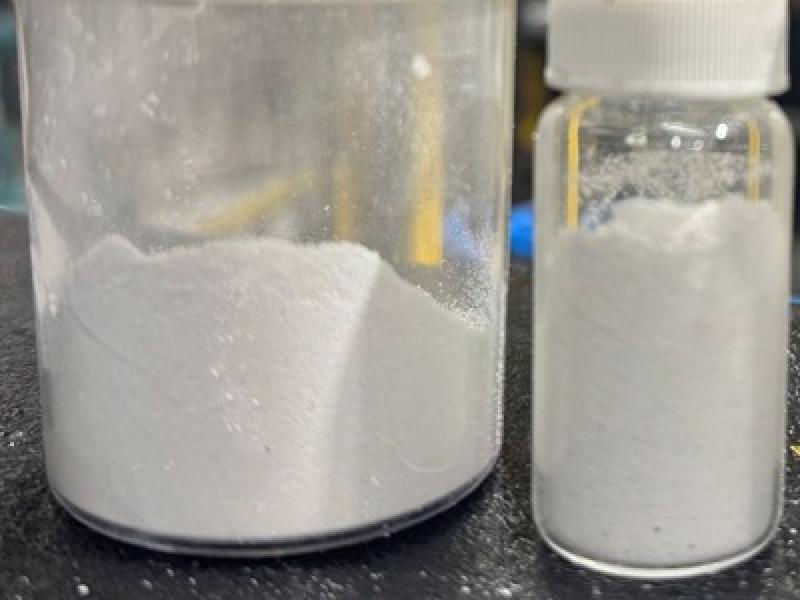
Bullfrog Power will provide green natural gas to Hiram Walker’s Windsor, Ont. facility (Courtesy Bullfrog Power, Hiram Walker)
Green power and energy provider Bullfrog has struck a deal to provide the Hiram Walker and Sons Ltd. distillery in Windsor with green natural gas.
The contract covers 20 per cent of the natural gas needs of the 160-year-old distillery, which covers four city blocks. Hiram Walker and its parent company, France-based Pernod Ricard, aims to be net carbon neutral by 2030.
Craig Dryburgh, senior director of the distillery, says the Bullfrog agreement is a year-long contract but the firm is in talks to arrange a longer-term contract for green natural gas.
“It’s a very hot commodity and very hard to come by, so you need to take a really long-term look to secure the supply,” says Dryburgh.
The current contract covers the equivalent of 80,000 GJ of green natural gas and will reduce the distillery’s CO2 emissions by 4,000 tonnes.
Green natural gas includes biogas, the methane collected at landfills, wastewater treatment plants and anaerobic digester sites, and renewable natural gas, which is biogas cleaned up to be chemically identical to the fossil fuel gas flowing through pipelines, says BullFrog Power president, Sean Drygas.
Bullfrog is the “market maker” for green power and energy, buying from generators and selling credits to its customers.
“There’s simply an accounting system set up to match purchases and usage. So the landfill or the wastewater treatment plant captures the gas and puts it into a pipeline. Physically those molecules will be burned by an industrial facility or a residential community nearby.
When Hiram Walker says they want to contract renewable gas, what they’re doing is paying for the credits created when that biogas was put into the pipeline,” says Drygas.
Using green gas is “an easy switch”
The Hiram Walker distillery is the “largest grain-to-glass facility in Canada,” says Dryburgh.
“We have natural gas boilers so using green gas is an easy switchover for us. It does come at a cost: renewable gas does come at quite a significant premium.”
The two parties won’t disclose the price details of the contract, but Drygas says residential green gas customers can pay close to three times the cost of fossil fuel natural gas. Corporate clients pay less because of their bulk purchases, he says.
“Supply is actually quite limited for green natural gas today,” Drygas says. “If you were able to get all the organic material produced in North America today (from landfills and human waste treatment plants) . . . and you were able to capture the gas coming off of that and use it as biogas, it would only address a mid-single digit percentage of the fossil gas we use.”
“A lot of people want it because heat is the next great frontier in the environmental or emission side.”
Drygas says on the electrical side, there is still building-out to do to create a fully renewable grid, but the technology and the cost are in sight.
“When it comes to heat, we’re still at the stage of finding the technology that gets us all the way there.”
The Hiram Walker distillery uses a considerable amount of steam in its process, requiring the type of heat generated by gas.
Hiram Walker reducing carbon footprint
Dryburgh says Hiram Walker will be changing equipment over the next few years to achieve greater efficiency and reduce its carbon footprint.
“We’re looking at how we recover steam from the distillation columns,” he says.
At the moment the firm doesn’t recover that steam. The company hopes to eventually use the steam for multiple passes through the system rather than just one.
Hiram Walker is a “grain-to-glass” facility meaning it brings in corn, barley and rye, processes the ingredients, distills and then bottles it. The waste corn husks, shells and water coming out of the distillation columns used to be dried with a steam dryer and shipped out as animal feed.
“That steam dryer is very energy-intensive. We’ve changed our process to eliminate the steam dryer and sell a wetter product to local farmers, rather than shipping all over the globe. So we’re taking trucks off the road and reducing our energy in the drying process.”
Bullfrog provides “high-quality” renewable gas
Hiram Walker chose Bullfrog because of the firm’s reputation and ability to provide some of the volume of renewable gas the distiller is seeking, says Dryburgh.
“We know exactly what we’re purchasing and it’s a high-quality product,” he says.
Toronto-based Bullfrog has been in business since 2005. The firm was bought by Toronto-based Spark Power in 2018.
Drygas says Bullfrog has 1,500 commercial customers and 10,000 residential customers.
“From a volume-of-energy standpoint the ratio would be reversed — commercial customers would be 80 to 90 per cent of the energy piece,” he says.
Drygas says Bullfrog, as a certified B Corporation, is committed to reinvesting some of its earnings into communities, helping grassroot groups across Canada address their energy needs with green power. The firm has about 150 of these projects underway.
Examples include solar panels for a greenhouse community project in a socially disadvantaged area of Halifax, and helping northern indigenous communities replace diesel fuel with solar panel power.









